Parasites can be called natural companions of humans, since these organisms cannot live outside the host body. It is believed that at least 70% of the world's population is infected with helminths. Furthermore, many people are home to them almost from birth. At the same time, he pondered the question of how to determine the presence of parasites in the body, about a third of people infected. The reason for this is that people's awareness is low or they don't care about their health status.
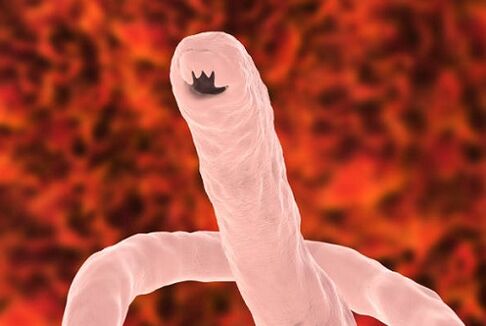
To avoid complications caused by parasites, it is important to recognize the disease promptly.
According to statistics, more than 60% of people infected with parasites learn about the problem by chance, and only about 30% intentionally seek out the symptoms of helminthiasis and go to the doctor to identify the problem. with a specialist.
Until recently, helminthiasis was often referred to as the poor man's disease, because of poor hygiene skills in these classes. However, with the growing interest in this issue from the scientific side, it has been found that such a definition is fundamentally wrong, as vermin can be found in both farmers and respected businessmen. .
Why is living with parasites dangerous?
Many people don't understand why they need to be tested for parasites, if there are no serious health problems? Why should you look for any interruptions in your state if they don't affect your usual lifestyle? Moreover, 8% of the population has a reasonable question - what if a person has learned to survive parasites in his body? After all, evolution does not stand still, and what was once considered harmful may have become the norm.
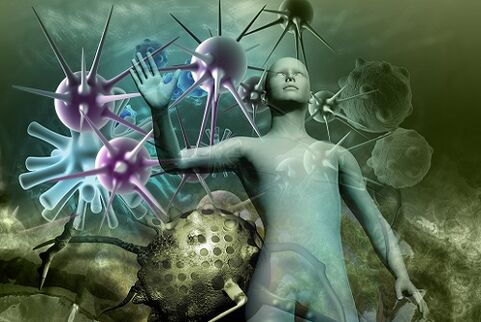
Similar questions have been asked many times, and any doctor, even the most inexperienced, would say that a parasitic organism is different from a symbiotic (a microorganism that existspeacefully in the human body, e. g. to process and assimilate food more efficiently) where it needs more than it provides. In the human body, parasites often act as very unreliable and irresponsible hosts:
- clog it with toxins and mud;
- destroys natural defenses (immunity);
- take away most of the nutrients;
- damage internal organs on a physical level.
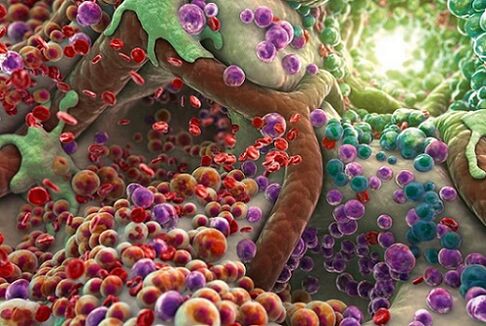
This is called the phenomenon of parasitism, ie existing in the host's body to get maximum benefit for himself but not for the host's benefit.
Timely detection of parasites helps to avoid many problems, including serious endocrine and hormonal disorders, dysfunction of internal organs and even mental disorders.
Signs appear with parasites
Most parasitic life forms that are dangerous to humans live in the intestines and internal organs. They rarely pass stools in their original form, and so, in the preliminary diagnosis, doctors only consider external signs when they stay. Their presence can be determined by a combination of clinical manifestations.

In 99% of cases, the host body reacts violently to a dangerous vicinity. Signs of a worm infection can be a variety of bodily dysfunctions, depending on which organ they live in. Since it can be difficult to detect parasites in their natural form, it is important to pay attention to the following symptoms:
- Sudden onset of gastrointestinal disturbances. Usually, they indicate that forms of intestinal helminths - roundworms and tapeworms, lamblia and protozoa - have already begun to parasitize. This group of symptoms can manifest with sudden onset of constipation or diarrhea, nausea and vomiting, belching, and poor digestion. Another sign of intestinal helminthiasis is vague abdominal pain, which may not be clearly localized.
- Allergic reactions in the form of rashes, peeling of the skin, the appearance of spots. In most cases, it is not possible to find the source of such a reaction, as allergen tests are negative. And only after the patient passed the test for the presence of parasites in the body, it became clear what had caused the atypical immune response.
- Deterioration of general health in the form of fever, fatigue, impaired sleep quality. Similar clinical manifestations of helminthiasis appear immediately after invasion, as well as with its prolonged course. Since it is not possible to immediately identify the parasite, many patients try to cope with these unpleasant phenomena with the help of folk remedies and symptomatic drugs. As a rule, they bring only temporary relief.

Some of the inherent signs of diseases associated with filariasis may be seen in women. As a result, their hair and nails become dull and brittle. The skin is also infected with parasites - it becomes pale, pustules appear, age spots, peeling.
A rare woman associated cosmetic problems with helminthiasis. Most of them say in the end: "I have a vitamin deficiency, a hormonal imbalance, not the worms! "
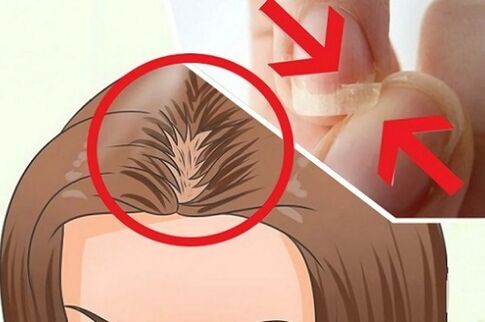
If you have the slightest suspicion that there are parasites in your body, how do you know exactly what causes them to appear? There are many methods of self-diagnosis at home, as well as specialized ways to identify worms.
How to recognize helminths at home
About 70% of patients who claim that they have worms do not want to go to the doctor with this problem. And the key here is not a person who does not care about his own health. Until now, trichinosis was considered a shameful disease that could only occur in the lower classes of the population. However, experts suggest that the well-off could have acquired an insidious settler.
Since most helminths settle in the intestines, the only way to detect their presence is to examine the stool. This timing test forms the basis for microscopic stool examination, in which the doctor can detect worm eggs.
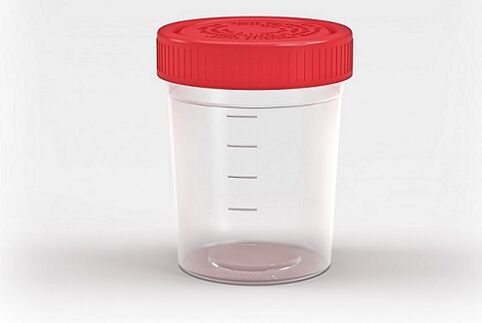
This is the simplest and cheapest method and can be done at home. However, it will not allow you to detect worm eggs due to their microscopic size.
How does self-test work?
There are several rules for how to determine the presence of parasites in the human body in this way:
- It is advisable to check the stool several times, because the worms do not come out continuously but periodically. Since different types of worms become active at different times of the day, both morning and evening stool collection is of interest. In the morning you can find pinworms, and in the evening you often come across larger worms - roundworms and tapeworms.
- Persons examining stool for helminths should wear disposable medical gloves on their hands. Most helminths actively secrete eggs that, if ingested, can cause reinfection. It is important to protect yourself from this, even if you already have symptoms of a worm infection. Throw them away after using gloves and wash your hands thoroughly with soap and water.
- During stool examination, an object should be used, since parasites can be found not only on the surface but also in the center of the stool. The stick or spoon should be thrown away after use.
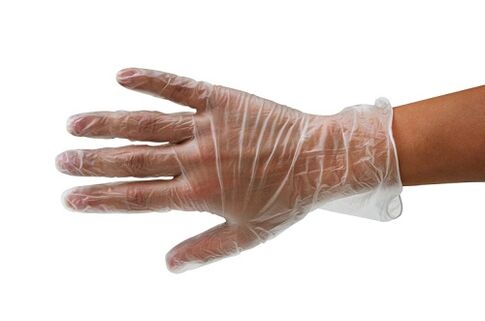
The last is the most important rule for self-study for worms. It is advisable to collect the material in a separate bowl, since it is not possible to carefully examine it in the toilet bowl or basin. As a last resort, you can cover the toilet bowl with empty plastic on it, then carefully examine the stool.
Experts recommend sticking a small portion of the material onto the glass, then inspecting the glass from all sides in good lighting. So even the smallest parasites can be seen.
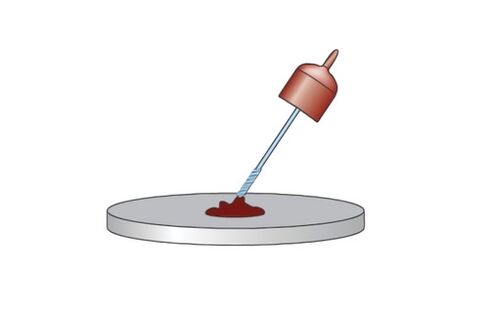
Stool self-test results for worms.
It is necessary to talk about 100% of the presence of helminthiasis if it can be found in the feces:
- small live or immobile worms;
- white or yellowish slices that look like boiled noodles with slightly wavy edges;
- movable rice-like flakes;
- Large roundworms are white or pink.
All these signs indicate that you have been infected with dangerous worms, which can lead to serious health problems, even sudden death. But even if the stool is "clean", and there are symptoms of helminthiasis, you should urgently contact an infectious disease specialist or pediatrician (if you notice signs of helminthiasis inyoung).
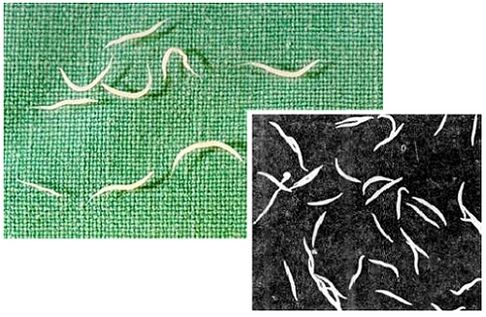
Worm test at the clinic
Since it is difficult to detect parasites on your own, and self-diagnosis is not very accurate, you should leave the diagnosis to professionals. Referrals to necessary tests are given by a physician or infectious disease specialist. If signs of intrusion bother your child, you can seek help from your pediatrician.
For an accurate diagnosis, you need to pass:
- microscopic stool analysis (coproovoscopy) - preferably three times with an interval of one week;
- scraping for filariasis;
- blood test for ELISA - one birth is enough to make a reliable diagnosis;
- stool PCR analysis - indicated when inconclusive results of microscopic stool examination are received.

In addition, the doctor can specify the diagnosis with additional instruments. This most commonly occurs when the presence of helminths is suspected in the liver parenchyma and biliary tract, or in other internal organs. When worms are present, tests will be positive (parasite eggs, their DNA, antibodies and antigens to them will be found in the materials).
Based on the diagnosis, the patient is prescribed treatment, which can almost always be done at home (not many cases of parasitic infections require hospitalization). It may be necessary to treat all family members with worm carriers because many of these organisms are easily transmitted from person to person.
















































